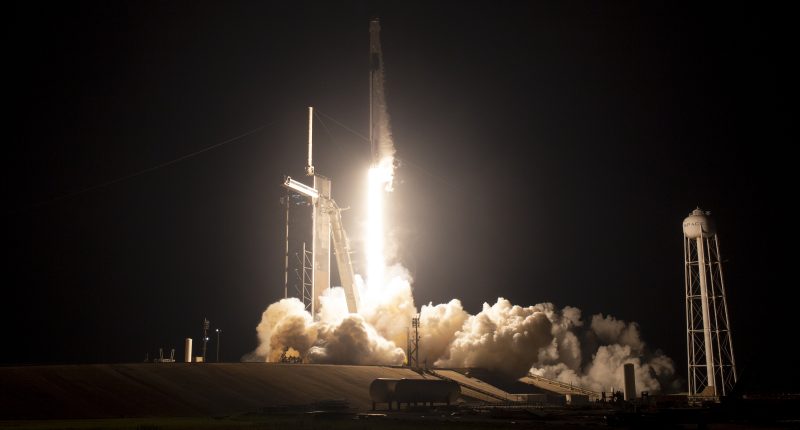A successful space mission is always something to look forward to, but the victory can get soured if something goes wrong at the last moment, ask SpaceX. After a successful Crew 9 mission, the second stage of its Falcon 9 rocket did not make it to Earth as intended, and the spacecraft as a result, has now been grounded.
The mission in question is the latest Crew-9 launch, wherein NASA astronaut Nick Hague and Russian cosmonaut Aleksandr Gorbunov were flown at the International Space Station ISS aboard SpaceX’s Crew Dragon. The launch occurred on Saturday, and the duo arrived at the ISS safely, marking another successful human spaceflight under NASA’s Commercial Crew Program. Two seats were left vacant aboard the spacecraft, so that astronauts Sunita Williams and Butch Wilmore, currently stranded aboard the ISS, can return home safely.
“Dragon has reached @Space_Station,” SpaceX CEO Elon Musk wrote in a post on X.
However, even after the successful crew launch, things went wrong during the Falcon 9’s second-stage deorbit burn. The second stage is designed to burn up over a designated zone in the ocean upon its re-entry to the atmosphere, and this time, the deorbit burn did not go as planned, causing the rocket to land outside the safety zone, somewhere in the Pacific Ocean. There was no danger to the public or property this time, but it still is the third issue SpaceX’s Falcon 9 has encountered in the past three months. Thus, it is now grounded.
“After today’s successful launch of Crew-9, Falcon 9’s second stage was disposed in the ocean as planned, but experienced an off-nominal deorbit burn. As a result, the second stage safely landed in the ocean, but outside of the targeted area,” SpaceX noted in a post on X. “We will resume launching after we better understand root cause.”
After today’s successful launch of Crew-9, Falcon 9’s second stage was disposed in the ocean as planned, but experienced an off-nominal deorbit burn. As a result, the second stage safely landed in the ocean, but outside of the targeted area.
We will resume launching after we…
— SpaceX (@SpaceX) September 29, 2024
This development comes a few months after a routine Starlink mission was affected by a liquid oxygen leak in the second stage, which resulted in the loss of 20 satellites. At that time, Musk’s space company revealed that the issue stemmed from a cracked pressure sensor line, and ensured that the Flacon 9 was back in business within two weeks. This did not last long, though, and last month, a booster used during a mission attempted to land on one of SpaceX’s drone ships but failed, resulting in a destructive crash. The list of issues with the Falcon 9 continues to grow, and while SpaceX has got the green light from the FAA to continue flying the spacecraft, it is also subject to the authority and will need to put an end to these issues. So far, the FAA has grounded Falcon 9 rockets three times in the past three months.
The Tech Portal is published by Blue Box Media Private Limited. Our investors have no influence over our reporting. Read our full Ownership and Funding Disclosure →






